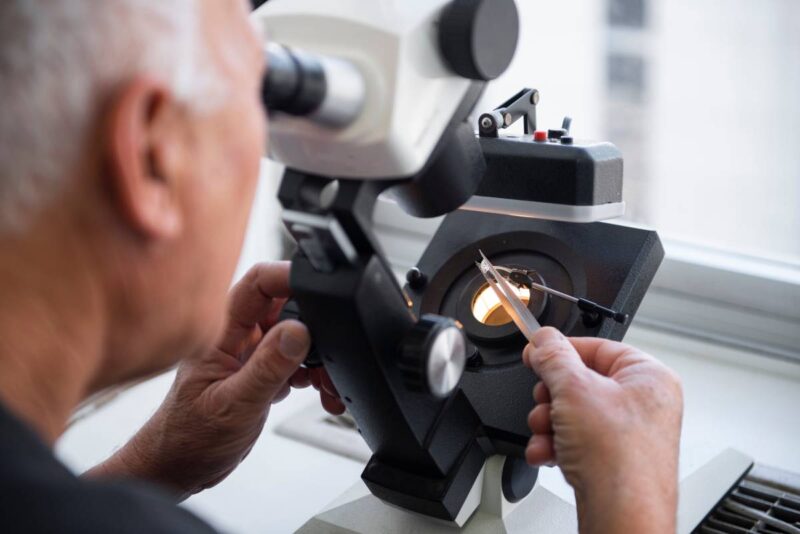The Responsible Jewellery Council (RJC) has launched the Laboratory Grown Material Standard (LGMS), a framework setting out requirements for responsible business practices in the lab-grown diamond and coloured gemstone sector.
The standard applies to RJC members working with lab-grown materials and covers areas including legal compliance, due diligence, labour rights, health and safety, environmental management, disclosure, and grading.
Scope and Requirements of the LGMS
The LGMS outlines 28 key provisions that businesses handling lab-grown diamonds and coloured gemstones must follow. These include legal obligations, human rights protections, hazardous substance management, workplace conditions, and disclosure requirements.
Companies will be required to document and implement management systems to ensure responsible sourcing and minimise supply chain risks. Clear communication and disclosure are also a focus, ensuring that businesses provide accurate information about their practices and products.
“Our mission at RJC is to promote responsible business practices from laboratory or mine to retail,” statess Dave Meleski, Chairman of the Responsible Jewellery Council. “With the LGMS, we are not just setting a standard; we are setting a vision for a future where elegance and ethics go hand in hand. We believe that every diamond, whether mined or lab-grown, can be celebrated without compromising our values.”
John Hall, interim executive director of the RJC, stated:
“Our mission is to create a trustworthy environment where buyers and sellers can engage with confidence. By implementing our LGMS, we aim to ensure only best practices from laboratory to consumer.”
Implementation Timeline and Certification
For the first year after its introduction, compliance with the LGMS will be voluntary for existing RJC members. After this transition period, certification will become mandatory for all members handling lab-grown materials.
To support companies in meeting these requirements, the RJC will offer training and educational modules, as well as a streamlined auditing process. These measures will align the LGMS with the RJC’s existing Code of Practices (COP), aiming to simplify compliance for businesses working with both mined and lab-grown materials.
Implications for the Jewellery Industry
The launch of the LGMS reflects the increasing focus on transparency and responsible sourcing in the jewellery and watch industries. With over 2,000 RJC members, including companies such as De Beers, Signet Jewellers, and Cartier, the standard is expected to have a wide-reaching impact on industry practices.
RJC Chairman Dave Meleski commented:
“With the LGMS, we are not just setting a standard; we are setting a vision for a future where elegance and ethics go hand in hand. We believe that every diamond, whether mined or lab-grown, can be celebrated without compromising our values.”






